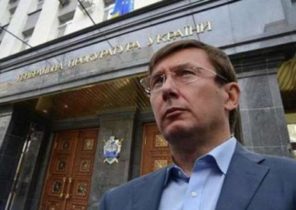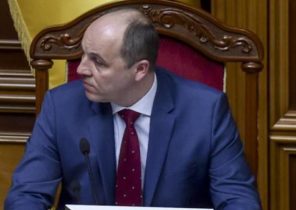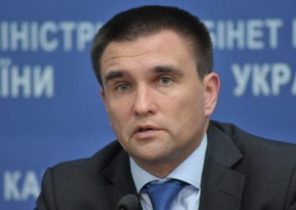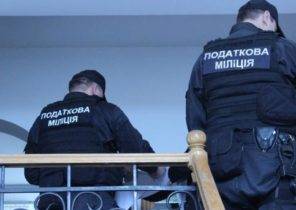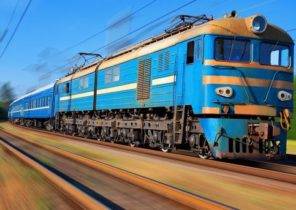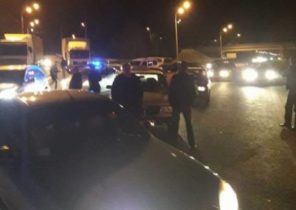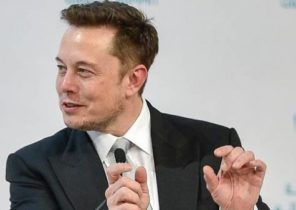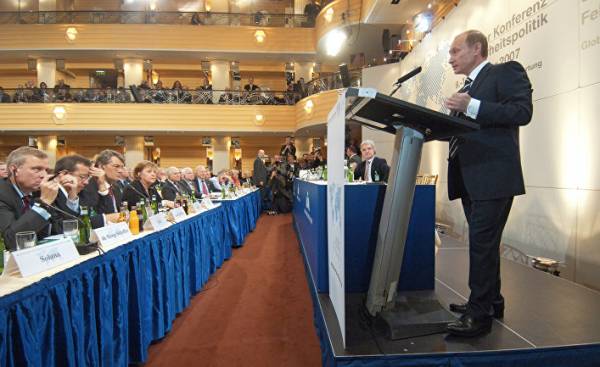
10 years ago Vladimir Putin’s speech at the Munich security conference was a harbinger of the aggressive policy of Russia. In 2017, after the wars in Georgia and Ukraine, the invasion of Syria, the Russian aggression is already the subject of analysis. Associated with Russia challenges Western security architecture is one of the main topics of the Munich forum. Putin, like last year, ignored the event. But will be attending the conference the Ukrainian President. For our country, Munich is another chance to discuss the issue of the Minsk agreements.
Guests Of Munich
Today, February 17, in the capital of Bavaria offers a three-day 53-I the Munich conference on security. It is from 1962 and is considered one of the most important annual international forums and the most important in the field of international security. The conference should take part more than five hundred politicians, businessmen, academics and human rights defenders. Among them is expected and German Chancellor Angela Merkel, NATO Secretary General Jens Stoltenberg, UN Secretary-General, antónio Guterres, head of the European Council Donald Tusk, the head of European diplomacy Federica Mogherini, the Ministers of foreign Affairs and defence of the United Kingdom, Germany, France.
The event invited the new US President Donald trump. However, the organizers have previously acknowledged that the White house is hardly going to visit it. In Munich may be held the first meeting of Merkel with representatives of Washington. At the conference expect the Vice President of the US Michael Pence, Secretary Rex Tillerson, the head of the Pentagon James Mattis and Minister of national security John Kelly. In addition, the forum will be attended by a delegation of members of Congress.
Ukraine at the Munich security conference will be represented by President Petro Poroshenko. Russia — foreign Minister Sergei Lavrov. In December it became known that Vladimir Putin ignores the next international forum.
Poroshenko will meet at least with Mike Pence, Jens Stoltenberg and the President of Poland Andrzej Duda. On 18 February and a meeting of foreign Ministers “channel four”, which representatives of Ukraine, Russia, and France has invited new foreign Minister of Germany, Sigmar Gabriel. On Thursday, Lavrov spoke to Gabriele in Bonn, Germany, where on 16-17 February was held a meeting of foreign Ministers of “Big twenty”. Lavrov yesterday held formal talks with Rex Tillerson.
In Moscow do not hide that I have certain expectations associated with the forum in Munich. Deputy Minister of foreign Affairs of the Russian Federation Sergey Ryabkov admitted that Russia is going to seize the opportunity for contact with senior U.S. officials. His meeting with Lavrov announced and Stoltenberg, stressing the importance of maintaining dialogue with Russia. In addition, the Russian foreign Minister will hold talks with EU high representative for foreign Affairs and security policy Federica Mogherini, as well as with colleagues from Turkey and Slovakia, the President and foreign Minister of Croatia, Minister of defense of Israel and other policies.
The agenda of the conference
The main theme of the Munich conference — the war in the Donbass, the Minsk agreement, sanctions against Russia, the West’s relations with Russia and the EU with the US with Donald trump, Brexit, the cooperation of EU countries in the sphere of security and defence, fight against terrorism, the situation in the middle East, the Korean Peninsula and others. For the first time at the Munich security conference held a special Ukrainian event, which will discuss possible guarantees for Ukraine in the security sphere by its Western partners. It as the “Ukrainian Breakfast” in Davos, organized by a team of oligarch Viktor Pinchuk.
This week is one important event flows into the other. Meeting of Ministers of “twenty” we have already mentioned. 15-16 February in Brussels held a meeting of defense Ministers of the NATO countries, whose main objective was to understand what to expect from the Americans. Ahead of the meeting, Stoltenberg spoke about the rising costs of the Alliance on defense — last year the EU and Canada have increased spending by 3.8% or $ 10 billion. And yet on the first day of the Council, the Pentagon chief James Mattis, though, and reiterated the US commitment to NATO, threatened the partners in the Association of the failure States of its obligations, if they do not increase their own defense budgets to the required rate of 2% of GDP.
Obviously, one of the topics for discussion could be the role of NATO in combating terrorism, because earlier Washington had stressed the need for the Alliance took over these responsibilities.
For the third consecutive year the organizers a few days before the Munich conference publish a report on that must think the participants of the forum. In 2015, experts at the conference analyzed the occurrence of the war in Ukraine and the expansion of the “Islamic state” (banned in Russia organization — approx. ed.), and a year later the immigration crisis in Europe and the deepening conflict in Syria. This year’s report of 90 pages is called “Post-truth, post-West, post-order?”. In the Preface the authorship of the conference leader, the famous German diplomat Wolfgang Ischinger contains the thesis that the world is going through times of greatest instability since the Second world war.
Among the challenges for humanity in the report referred to the threat from Islamists, the anti-liberal forces and populist movements, manipulation of information, which is a threat to liberal democracy and the security situation in Europe, the middle East and the Pacific. According to the Ischinger, the West has shown that it does not want and is not able to cope with large-scale crises, and this is best illustrated by the situation in Syria.
The concern among analysts is causing both Russia and the United States with the new President. To present his vision of the situation in the world, the authors used the terms “axis of fear” and a “political recession”, meaning the advent of authoritarian governments and the growing popularity of isolationism, nationalism and populism.
In the context of the situation in Eastern Ukraine, the report quoted Deputy head of special Monitoring mission of the OSCE Alexander hug, the conflict is “far from freezing”. They add that more and more politicians think about the revision of the European sanctions against Russia. “Ukrainians and the rest of Europe 2017, upcoming elections in major European countries and the new US administration — will be critical”, — stated in the report.
The expert of Fund “Maidan foreign Affairs” Alexander’hare shared with the “Apostrophe” opinion that the European security will be the main conference in Munich: “First of all, Russia as such. Also, of course, international terrorism and other things. In addition, there will be collected by a representative of the delegation of the European States, we must not forget that there will be, and Vice-President of the United States and the Secretary of defense. Of course, they will add this discussion to the global tone.”
Although representing Russia, Lavrov will try to present at the conference his vision of international Affairs and influence the opinion of the participants, it is unlikely he will succeed. “I don’t think that those who are there, have any illusions about the negative role of Russia,” said Hara.
“I think the conference most of the people consider Russia still as a threat,” agreed the German political scientist, senior researcher at the Institute for Euro-Atlantic cooperation in Kiev, Andreas Umland.
Use of the conference
On the eve of the forum remember the famous Munich speech of Vladimir Putin a decade ago. It was made in the conference on security 2007, and then Putin expressed its opinion on the existence of a systemic crisis of security in Europe and of the evils of unipolar world order. In particular, Putin criticized the United States and the policy of NATO expansion to the East, ostensibly directed against Russia. Putin’s Russia then called one of the “new centres of global growth,” along with China, India and Brazil.
Media and Western politicians have called the speech the most stringent since the end of Cold war, have compared it to the Fulton speech of Winston Churchill in 1946. However, this signal was not properly received by world leaders, the Russian policy is not received back, and was followed by the war in Georgia and Ukraine.
Here he writes about the importance of the speech of the famous Russian publicist, program Director of the Moscow Carnegie center Andrey Kolesnikov: “Everything that was said in the Munich speech 10 years ago, formed the basis of policy of the third term of Vladimir Putin. Implementing the ideas of the Munich speech was postponed for objective reasons: a pause was taken for the period of Dmitry Medvedev’s rule, gave rise to the illusion of Westernization in Russia. […] To complete freedom of hands — the annexation of Crimea — still had to survive. But since Munich began the freedom of speech. […] Putin presented a list of grievances as if waiting for comfort and assurances of the perfect consideration. The effect was reversed, but this option is Used to calculate: you do not want, Russia from a part of the West will turn into sverhsekretnye island. On this day, Putin has lost Europe and perhaps the entire West. And judging by what happened next, he personally decided for themselves that they are free in their actions: if you fail to become a world leader according to the Western rules, it will become a world leader by his own rules”.
Also remembering the memorable speech of the Russian leader and noting the importance of the Munich conference, Andreas Umland compared this area with the world economic forum in Davos. Only if in the Swiss town discussed primarily economic issues, in the Bavarian capital, the emphasis is on security policy.
“Of course, no concrete decisions are not accepted, but nevertheless it is a prestigious platform on which to communicate, to present any plans, new ideas which, maybe, at official meetings not yet discussed. And there are no such stringent diplomatic restrictions,” Umland explained.
It is logical that the main issue on the Ukrainian side in Munich there is a deterioration in the Donbass in the area of Avdeevka. Senior analyst at the International center for policy studies Anatoliy Artisyuk believes that Petro Poroshenko will try to get the Europeans to form a unified position regarding the implementation of the Minsk agreements. For this, the Ukrainian President can threaten and impose martial law in Eastern Ukraine.
“I think that at this conference, Poroshenko acknowledge the ineffectiveness of the [Minsk agreements]. Most likely, they will say that this format does not work, and you must look for some other behaviors,” suggested Artisyuk. Still, as we know, the Ukrainian authorities stressed that the Minsk agreement is the only way to end the war in the Donbass.
And since Munich, the format implies that the policies Express software foreign theses, we can expect that the President of Ukraine asking for an extension of sanctions against the Kremlin, adds Artisyuk. For Poroshenko’s visit to Munich important from the point of view of its future trip to the meeting of the UN security Council and a possible meeting with Donald trump at the end of February. “After these international trips Poroshenko should form a real, sober understanding of how the geopolitical situation has changed”, says Artisyuk.
“This platform would be suitable for such discussions. But it’s likely, of course, will not make himself Poroshenko. Entirely new ideas communitywide usually start at a lower level,” said Umland, answering the question whether the Ukrainian President to use the conference in Munich to propose options for improving the Minsk agreements or the alternative.
However, ‘hare doubts that Poroshenko can tell the Western partners of Ukraine, “something that they don’t know.” “It is also unlikely that he will be there to criticize and try to reformat “Minsk”, because it is the mantra of the inevitability of repeating everywhere: everyone says it’s the only way to the conflict, as they call it,” — said Jara.
For Ukraine, the Munich security conference is an important first opportunity to meet with the Americans. But again, Kiev has limited Arsenal in terms of the proposals: “There are some reputational costs, we are criticized for reforms, corruption and other things. What Poroshenko has to offer, except promises, it’s hard for me to say,” says Khara.
